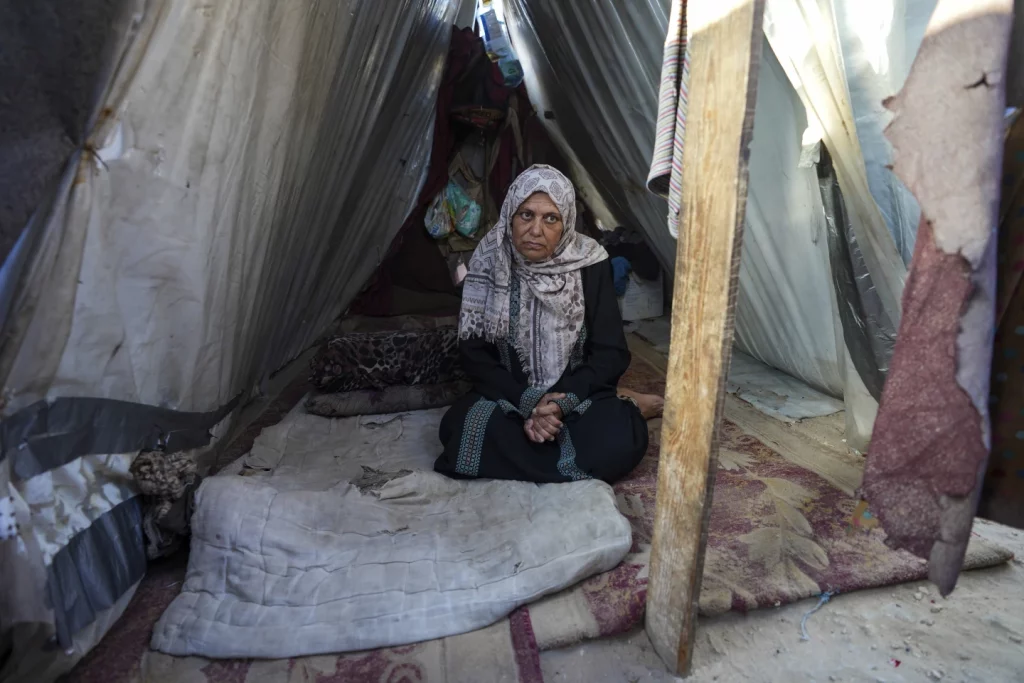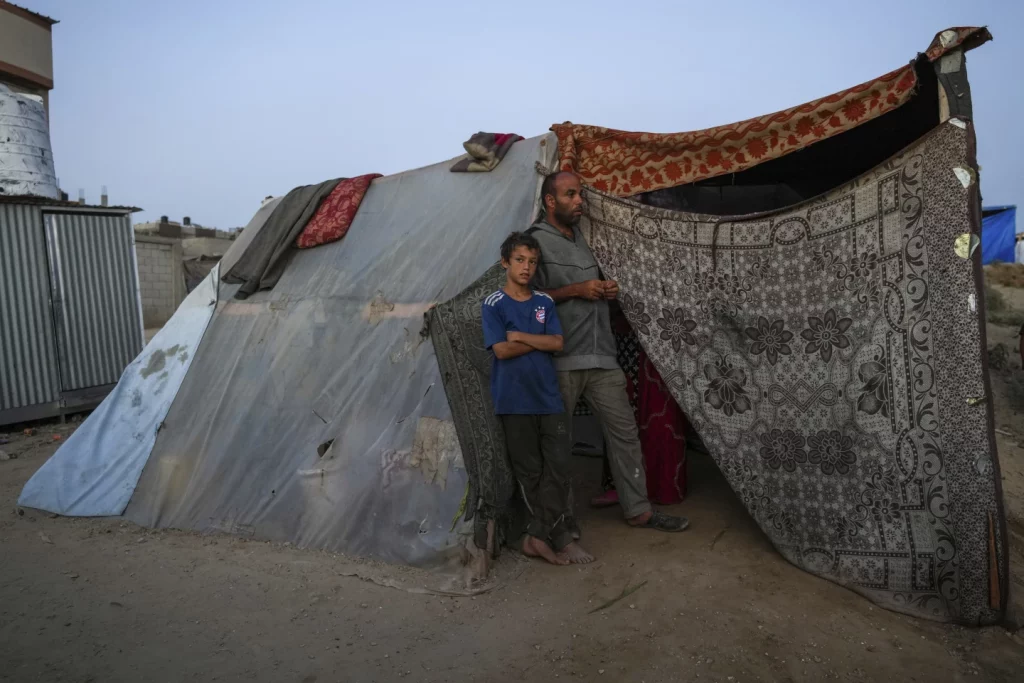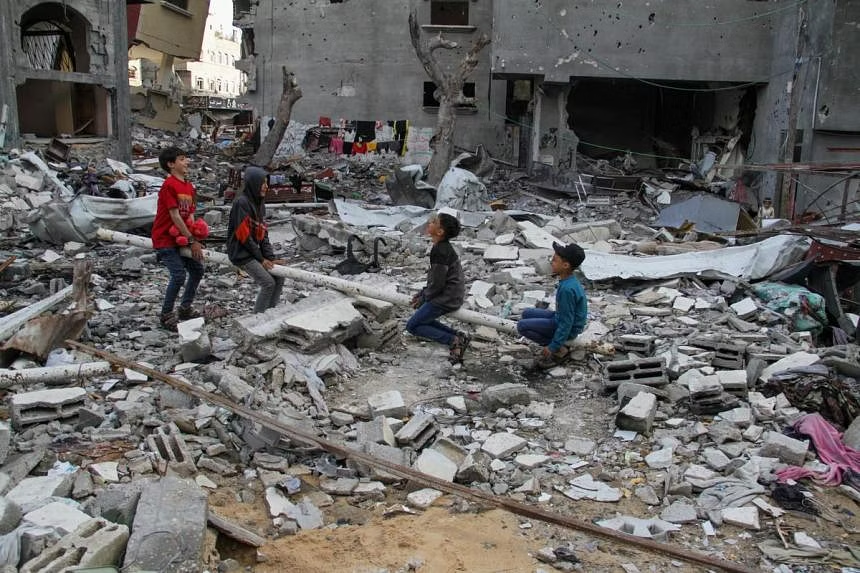DEIR AL-BALAH, Gaza Strip (CT) — Last summer, Palestinians in the Gaza Strip celebrated Eid al-Adha with traditional large family feasts, sharing meat with those in need, and giving new clothes and gifts to children.
This year, after eight months of intense conflict between Israel and Hamas, many families are forced to eat canned food in sweltering tents. The local markets lack meat and livestock, and there is no money for holiday treats or presents — only war, hunger, and misery seem to prevail.
Also read this:- Muslims Begin Hajj Amid Ongoing Israel-Hamas Conflict
“There is no Eid this year,” said Nadia Hamouda, who lost her daughter in the war. Having fled her home in northern Gaza months ago, she now stays in a tent in Deir al-Balah. “When we hear the call to prayer, we cry over those we lost and the things we lost, and what has happened to us, and how we used to live before.”

Muslims around the world will celebrate the four-day Eid al-Adha, the Feast of the Sacrifice, early in the week. It commemorates the Prophet Ibrahim’s willingness to sacrifice his son, Ismail, as recounted in the Quran. In the Jewish and Christian traditions, Abraham is called to sacrifice his other son, Isaac.
Gaza was impoverished and isolated even before the war, but people still managed to celebrate by hanging up colorful decorations, surprising children with treats and gifts, and purchasing meat or slaughtering livestock to share with those less fortunate.
“It was a real Eid,” Hamouda said. “Everyone was happy, including the children.”
Now much of Gaza is in ruins and most of the population of 2.3 million Palestinians have fled their homes. After Hamas’ surprise attack on Israel on Oct. 7, in which Palestinian militants killed some 1,200 people and took another 250 hostages, Israel launched a massive air and ground assault.
The war has killed over 37,000 Palestinians, according to the Hamas-run Health Ministry. It has destroyed most of Gaza’s agriculture and food production, leaving people reliant on humanitarian aid that has been held up by Israeli restrictions and the ongoing fighting.
United Nations agencies have warned that over a million people — nearly half the population — could experience the highest level of starvation in the coming weeks.
In early May, Egypt shut down its crossing into the southern Gazan city of Rafah after Israel captured the Palestinian side of it, sealing the only route for people to enter or leave the territory. That means virtually no Palestinians from Gaza will be able to make the annual Hajj pilgrimage that precedes the Eid.
Ashraf Sahwiel, who was among hundreds of thousands of Palestinians who fled from Gaza City earlier in the war and is also living in a tent, has no idea when or if he’ll be able to return.
“We don’t even know what happened to our houses or whether we’ll be able to live in them again, or if it’s even possible to rebuild,” he said.

Abdelsattar al-Batsh said he and his family of seven haven’t eaten meat since the war began. A kilogram (2 pounds) of meat costs 200 shekels (around $50). A live sheep, which could be bought for as little as $200 before the war, now costs $1,300 — if it’s even available.
“Today, there is only war. No money. No work. Our houses have been destroyed. I have nothing,” al-Batsh said.
Iyad al-Bayouk, who owns a now-shuttered cattle farm in southern Gaza, said severe shortages of both livestock and feed due to Israel’s blockade have driven up prices. Some local farms have been turned into shelters.

Mohammed Abdel Rahim, who has been sheltering in a building in an empty cattle farm in central Gaza for months, said the farm-turned-shelter was particularly bad in the winter when it smelled like animals and was infested with bugs. As the heat set in, the ground dried out, making it more bearable, he said.
Abdelkarim Motawq, another displaced Palestinian from northern Gaza, used to work in the local meat industry, which did brisk business ahead of the holiday. This year, his family can only afford rice and beans.
“I wish I could work again,” he said. “It was a busy season for me, during which I would bring money home and buy food, clothing, nuts, and meat for my children. But today there’s nothing left.”

